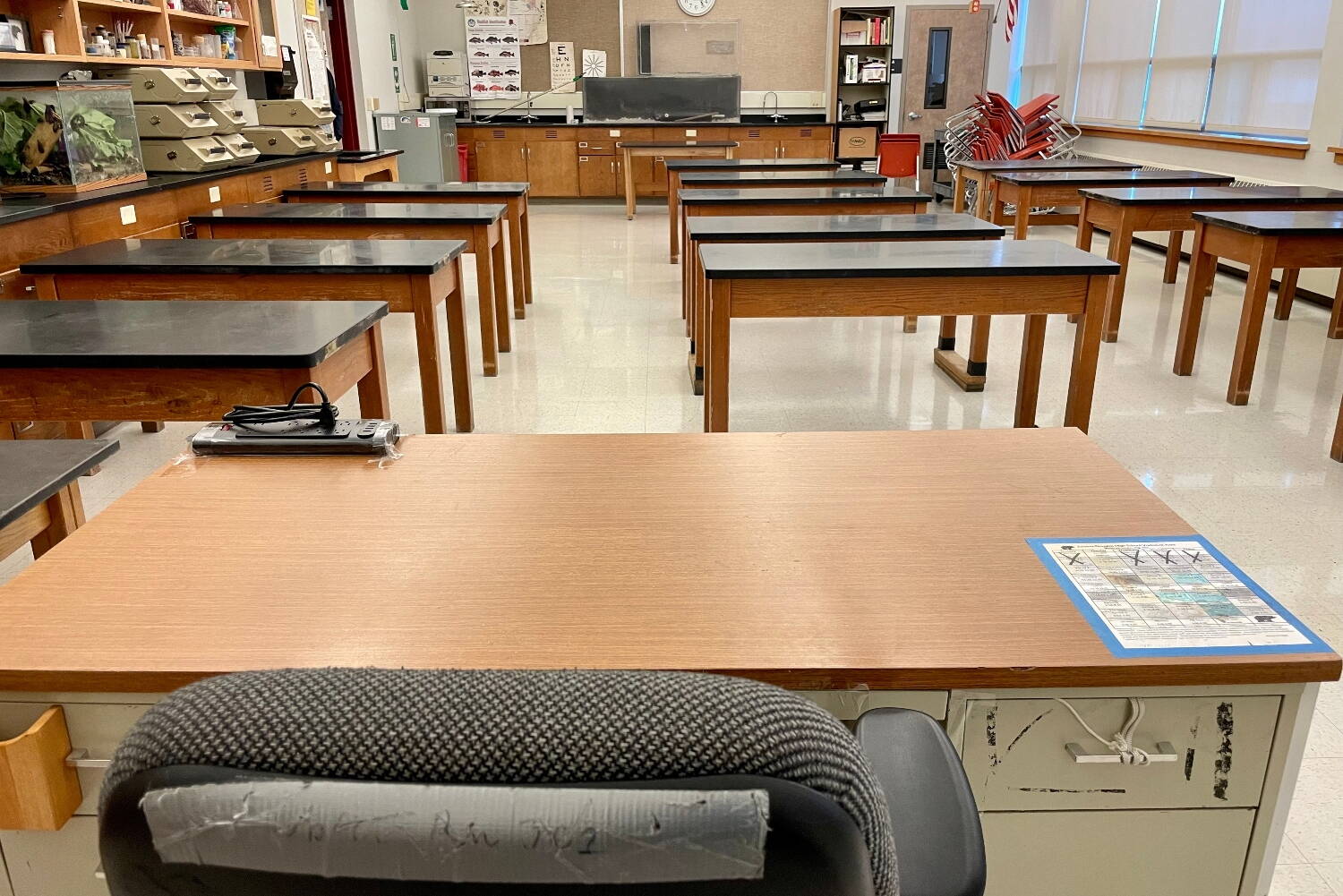There are more than 3,000 students known to be experiencing homelessness in Alaska, and the number has grown over the last five years. It is also likely to be a 50-100% undercount, according to advocacy group SchoolHouse Connection.
In an Alaska Senate Education Committee meeting on Jan. 29, Barbara Duffield, SchoolHouse Connection’s executive director, said student homelessness affects things like declining enrollment, chronic absence, mental health challenges and graduation rates.
“Essentially, the crises in public education that we’re seeing today are very much driven to a certain extent by homelessness, and particularly when it’s not addressed,” she said.
Alaska school districts could miss out on more than half of a $2.3 million dollar boost to their existing programs for those students if they don’t spend the money by this September, she said.
In recent years Alaska’s existing programs aimed at stabilizing these students’ school experience and supporting them academically have been significantly augmented by the American Rescue Plan Act. U.S. Sen. Lisa Murkowski, R-Alaska, worked for an amendment to that legislation to secure an additional $800 million for students experiencing homelessness, of which Alaska districts got $2.3 million. On Thursday, Murkowski said that as the deadline approaches, officials need to find a way to get the money out the door.
“Do we need more time? Extensions of time can be more problematic,” she said. “But this is something that I think for Alaska is worth fighting for.”
The office of Sen. Löki Tobin, D-Anchorage, has drafted a resolution that asks the state’s federal delegation to pursue a year-long extension so that districts have time to allocate the funds.
The funds for students experiencing homelessness are tied to other emergency relief funds for students, which could be a hurdle to achieving an extension.
Homelessness can significantly affect students at school. While chronic absenteeism — a known detriment to good student outcomes — has been increasing among all students in Alaska, students experiencing homelessness are chronically absent at roughly twice the rate. They are also nearly 30% less likely to graduate than their housed peers, according to the National Center for Homeless Education.
The state usually funds its programs with less than $400,000 a year, from the McKinney-Vento Act. Duffield said those funds come with requirements like an education liaison, transportation and immediate enrollment that “make school an oasis of stability when everything else in the youth’s life is turned upside down.”
She said those programs really benefited in Alaska after Murkowski secured the boost, which was eight times the state’s typical annual amount, in the last pandemic package. In Anchorage and Kenai, school districts used the money to bring on additional staff to work with unhoused students, among other things.
The funds aimed specifically at youth are important because the other federal funding for COVID wasn’t reaching homeless students.
“Many more school districts in the state are getting funding through this. It’s much more flexible. Things like store cards, gas, cars, car repair, all of these things,” Duffield said.
She said the most recent data shows that the ARPA funds have led to an increase in identifying students who experience homelessness — a crucial step to helping stabilize their lives. Once districts with the funds know a student is experiencing homelessness they can help fund transportation to the same school, even if the student’s address changes. They can waive certain enrollment requirements temporarily to make sure the student starts on time, and even help with school supplies.
• Claire Stremple is a reporter based in Juneau who got her start in public radio at KHNS in Haines, and then on the health and environment beat at KTOO in Juneau. This article originally appeared online at alaskabeacon.com. Alaska Beacon, an affiliate of States Newsroom, is an independent, nonpartisan news organization focused on connecting Alaskans to their state government.

